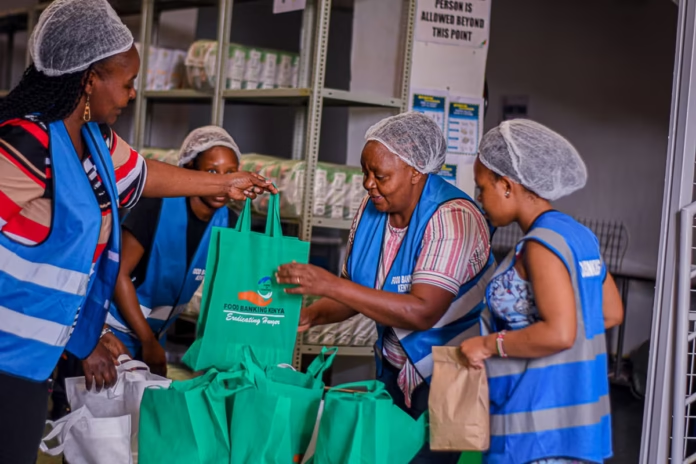Food banks in Kenya, Nigeria, and South Africa are warning of unprecedented demand for assistance as sharp cuts to foreign aid, led by the United States under President Donald Trump, combine with the climate crisis and soaring living costs to deepen hunger across the continent.
According to a report by The Independent, major food aid providers say they are struggling to keep pace with need while their funding and supplies shrink. In Kenya, Food Banking Kenya has seen demand rise by more than 300 per cent this year, a surge it links to the loss of United States Agency for International Development (USAID) support and worsening economic pressures.
Chief executive John Gathungu described the situation as “completely unimaginable,” noting that some families are going days without food, with tragic consequences.
The cuts, which took effect in May, saw USAID terminate more than 80 per cent of contracts with Kenya, South Africa, and Nigeria—worth an estimated $260 million, $224 million, and $178 million respectively. The impact has also been felt through partner organisations, such as the Kenyan Red Cross, whose reduced capacity has forced the food bank to step in for health and ambulance service patients in need.
In South Africa, Food Forward South Africa—Africa’s largest food bank—distributed 25 million tonnes of food last year, but says it has been forced to pause new partnership applications as requests for help have soared. Managing director Andy DuPlessis said they are receiving up to 400 applications a month, far above the usual 100–250. He warned demand could climb by another 20 per cent in the coming months as remaining USAID grants and redundancy payments run out.
The Lagos Food Bank in Nigeria, which fed three million people last year, says it is already seeing demand at five times the level recorded during the Covid-19 pandemic. Executive director Michael Sunbola attributed this to runaway food inflation which is currently over 30 per cent to weak harvests, and climate impacts that have worsened food insecurity. Aid cuts have also forced some international partners to withdraw, although new corporate donors have partly filled the gap.
All three organisations report that climate change is compounding the crisis. In Kenya, erratic rainfall and flooding have left even smallholder farmers in need of food aid. In South Africa, droughts and floods have disrupted harvests, while Nigeria’s northern regions face prolonged dry seasons that are undermining crop yields and driving up prices.
With demand far outstripping supply, food bank leaders warn that without restored funding and climate resilience measures, hunger will deepen for millions already living on the edge.

